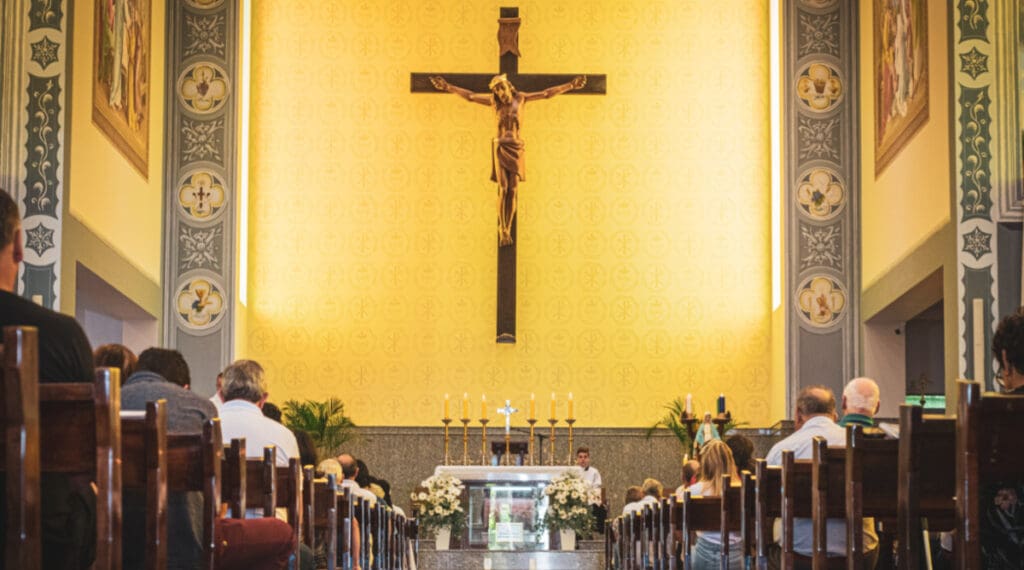The opening of the Book of Isaiah is provocative, especially for those of us who hold the Liturgy in high esteem, as well we should. However, it is possible for us to distort even great things like the Mass and the sacraments.
Let’s look at the reading and then draw a few teachings from it:
Hear the word of the Lord, princes of Sodom! Listen to the instruction of our God, people of Gomorrah! What care I for the number of your sacrifices? says the Lord. I have had enough of whole-burnt rams and fat of fatlings; in the blood of calves, lambs and goats I find no pleasure. When you come in to visit me, who asks these things of you? Trample my courts no more! Bring no more worthless offerings; your incense is loathsome to me. New moon and sabbath, calling of assemblies, octaves with wickedness: these I cannot bear. Your new moons and festivals I detest; they weigh me down, I tire of the load. When you spread out your hands, I close my eyes to you; Though you pray the more, I will not listen. Your hands are full of blood! Wash yourselves clean! Put away your misdeeds from before my eyes; cease doing evil; learn to do good. Make justice your aim: redress the wronged, hear the orphan’s plea, defend the widow (Is 1:10-19).
Our worship can lack integrity. That which is supposed to glorify God and bring forth in us a holy obedience can become lip service. God seeks hearts that are humble, docile, loving, and repentant. We cannot satisfy Him just by singing a few hymns, saying some prayers, or attending Mass. These things, good though they are, are meant to bring about a conversion in us that makes us more loving of both God and neighbor, less violent, more just, more merciful, more generous, and more holy. Our worship should effect change in us such that we cease doing evil, learn to do good, strive for justice, address injustice, and defend and help the poor, the unborn, the elderly, the dying, and the helpless.
An additional problem with our worship today is that God has become almost an afterthought. Much of our liturgy is self-centered, self-congratulatory, and anthropocentric (rather than theocentric). We are “the aware, gathered community celebrating itself.” While the Mass should focus on God and summon us to humility and joy before Him, too often it seems more an exercise in self-congratulation. We are very narcissistic, even in a communal setting.
God cannot be pleased with all of this. Even if our worship is rightly ordered, we are not going to buy Him off that easily. God wants an obedient heart more than sacrifice. Sacrifice without obedience is a sham.
We need God to restore our integrity and give us a new heart. We are “dis-integrated,” in the sense that pieces of our life that should be together (e.g., worship and obedience, liturgy and healing) are not. Too often our worship does just the opposite of what it should. Instead of drawing us more deeply into the love and obedience of God, it becomes the very occasion of keeping Him at a distance and seeking to placate Him with superficial gestures. This makes our worship a lie and an insult to Him. God doesn’t mince words in the passage above when He says how displeased He is.
We need God to give us a new heart, one that loves Him as well as the people and things that He loves. Only then will our worship will truly reflect the heart that God seeks: a loving, humble, and generous one.
May our worship give us a new heart and deepen our commitment to God and neighbor!
This post was originally published on Community in Mission and is reprinted here with permission.
Photo by Mateus Campos Felipe on Unsplash.





